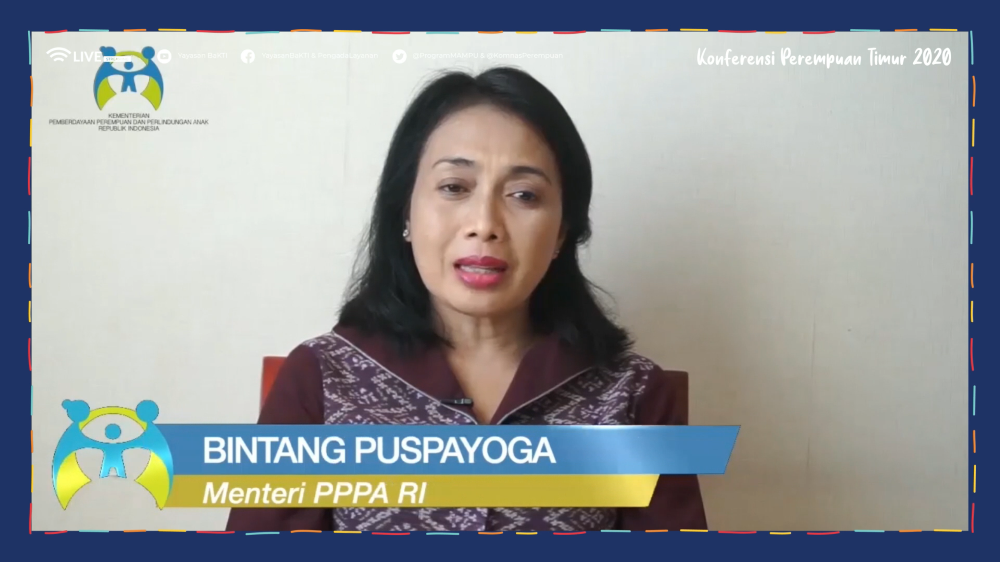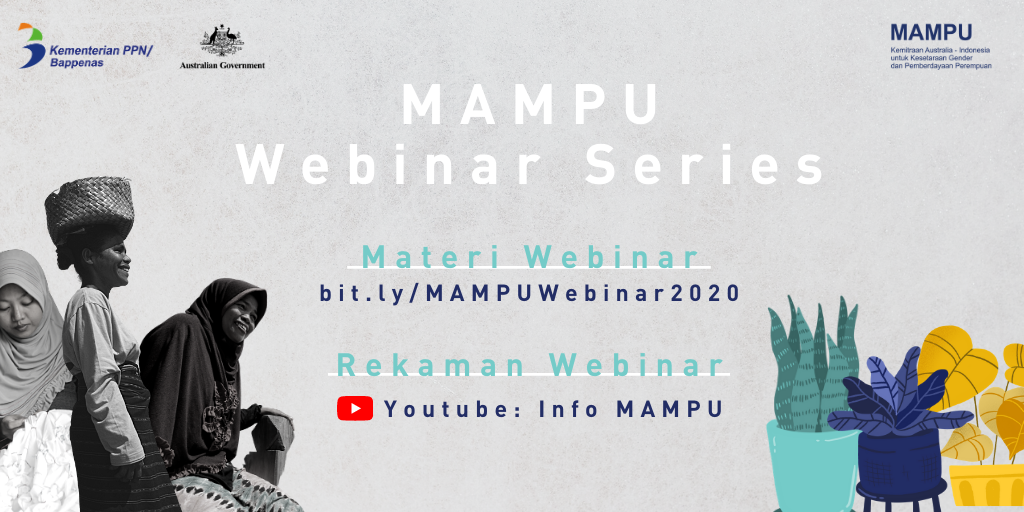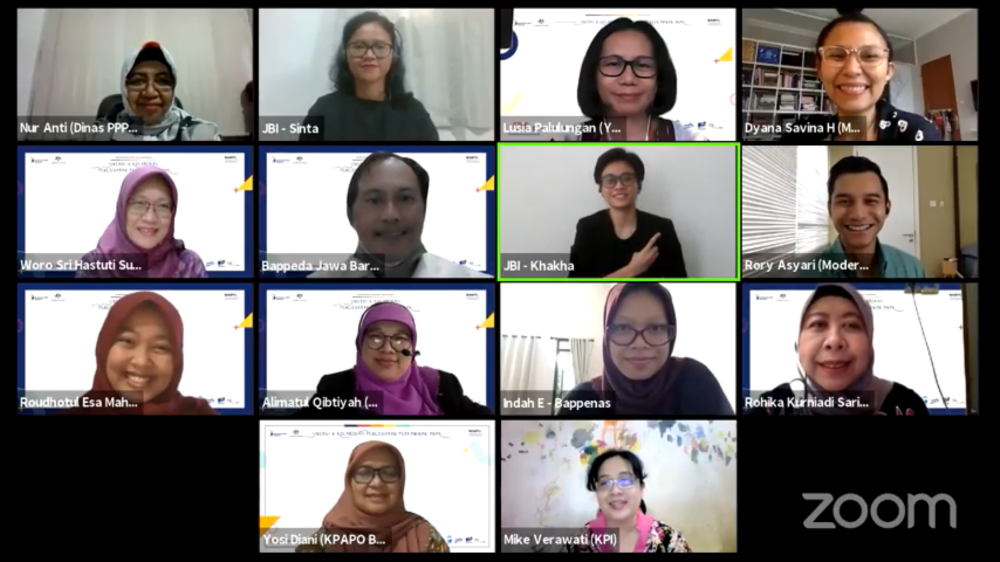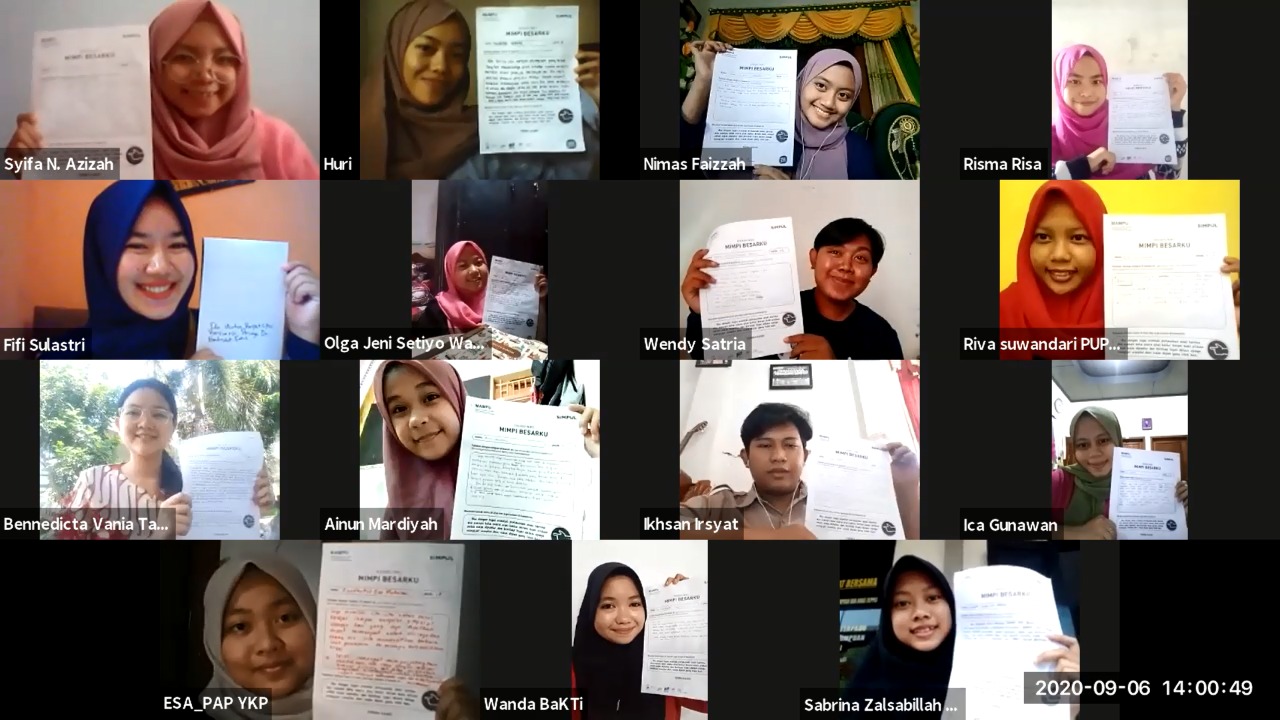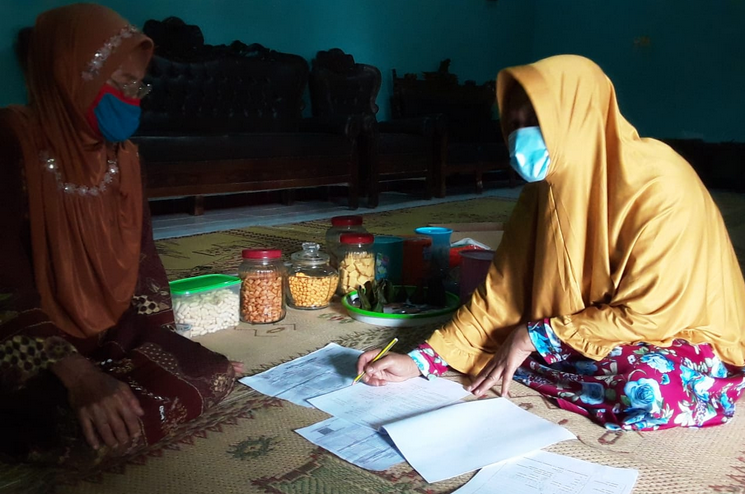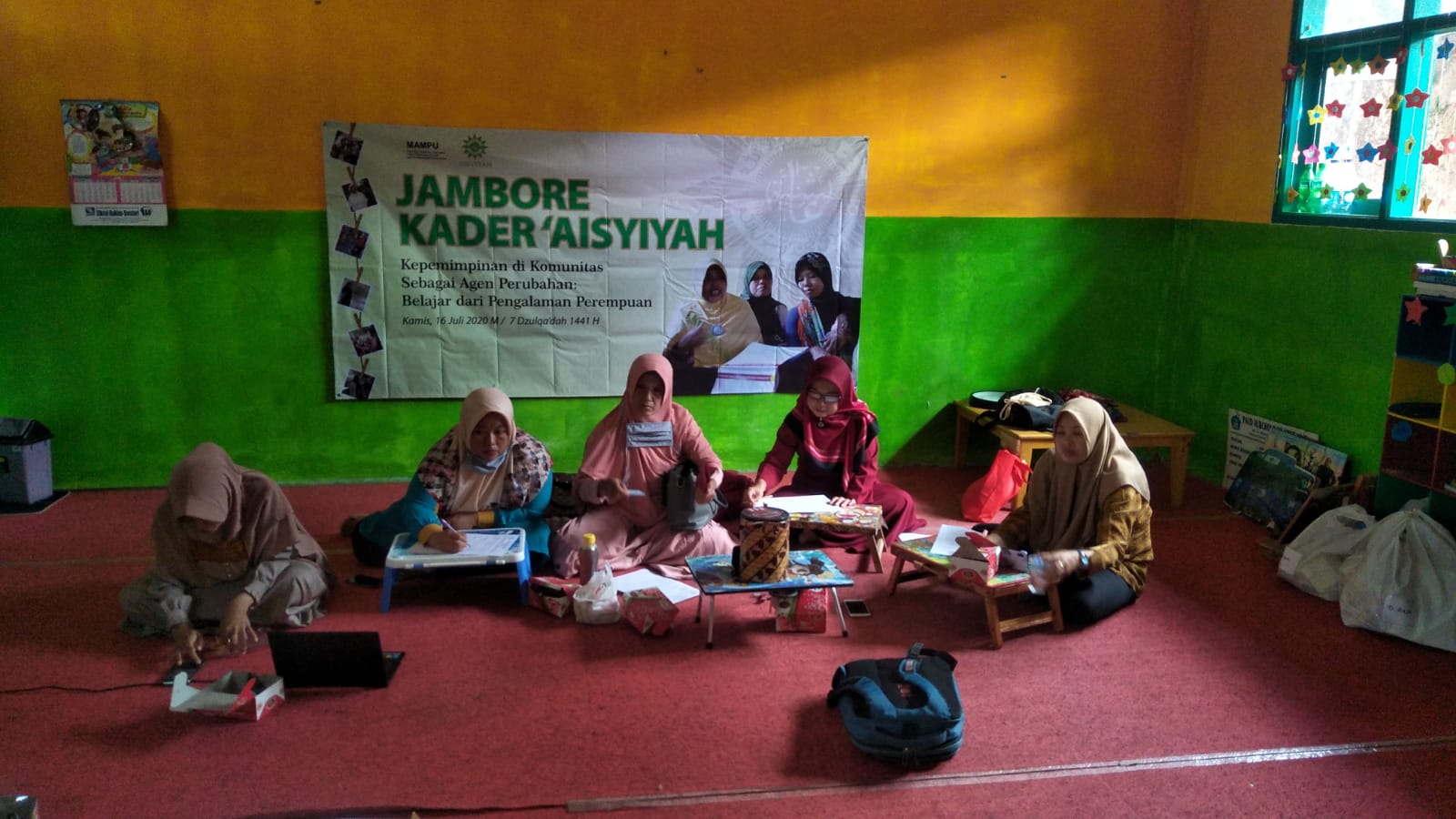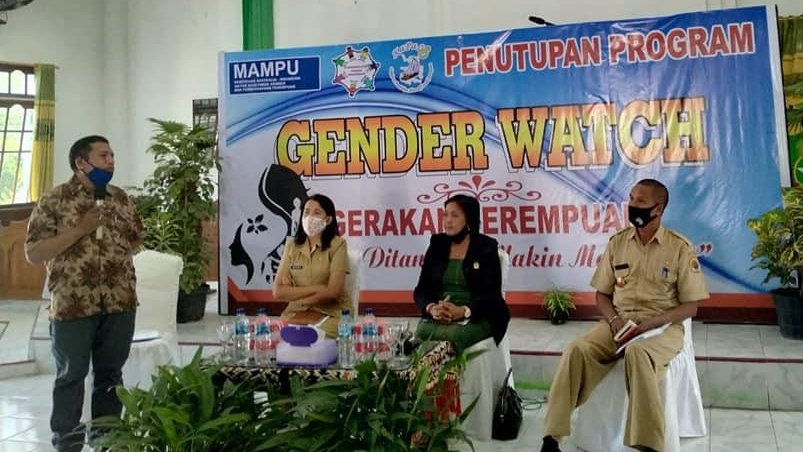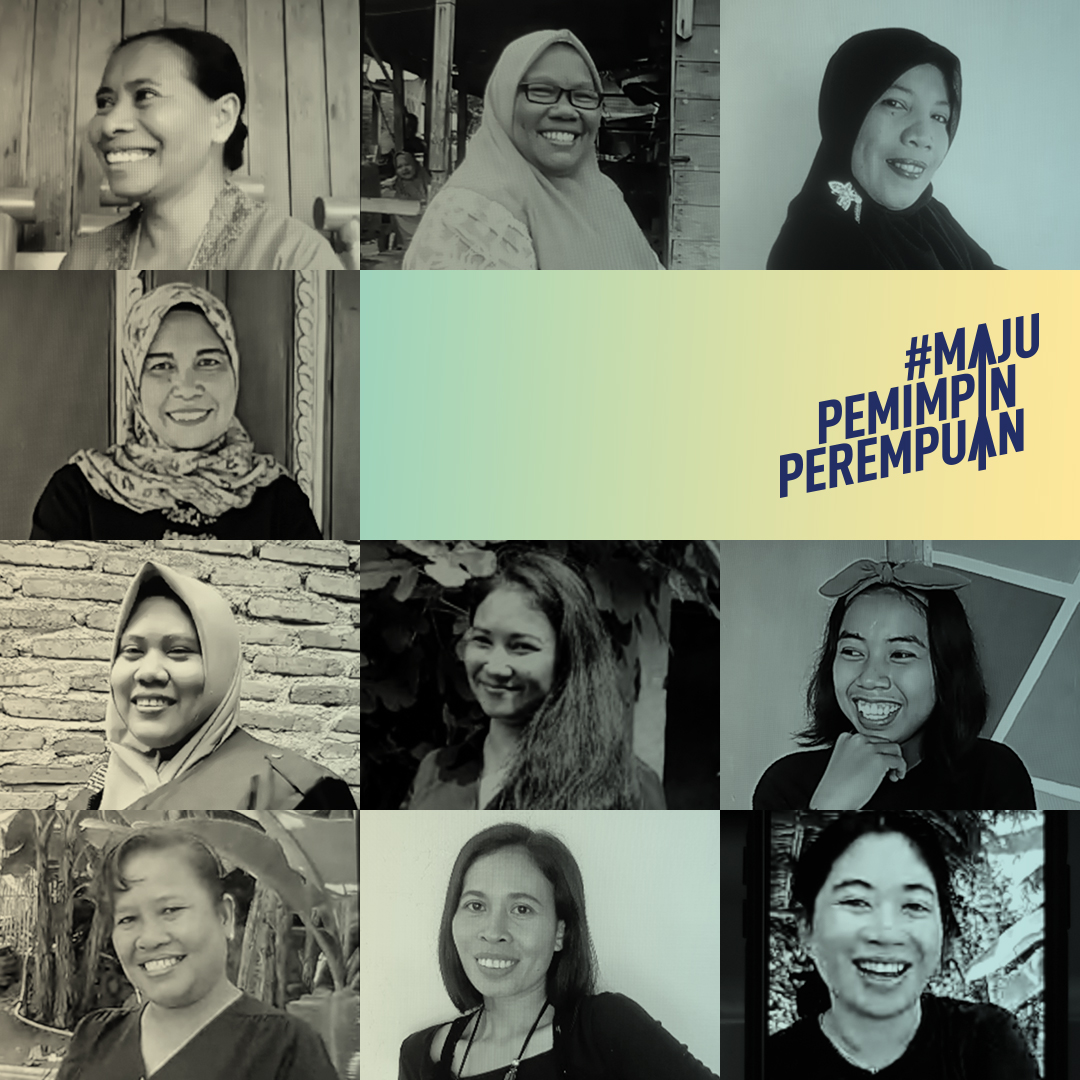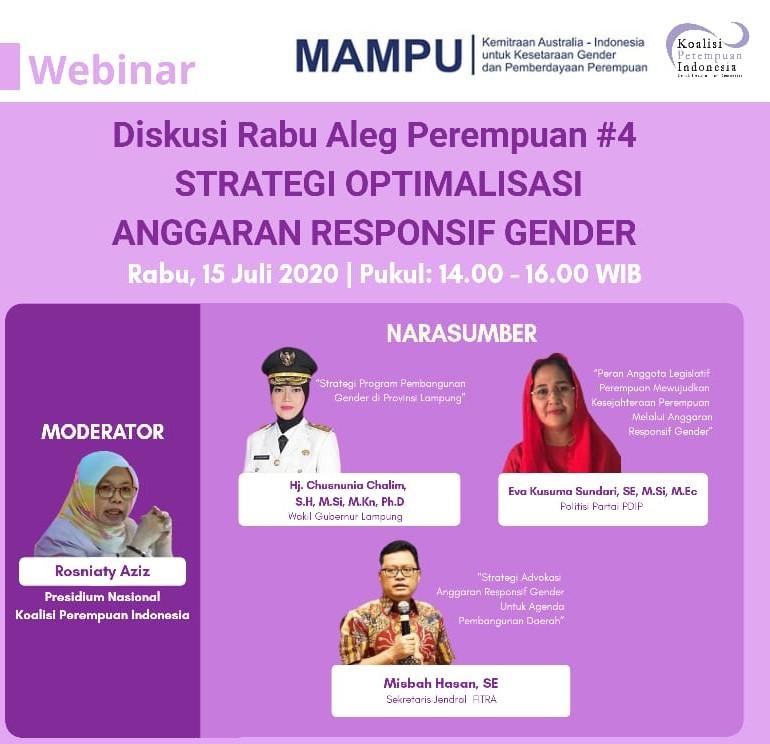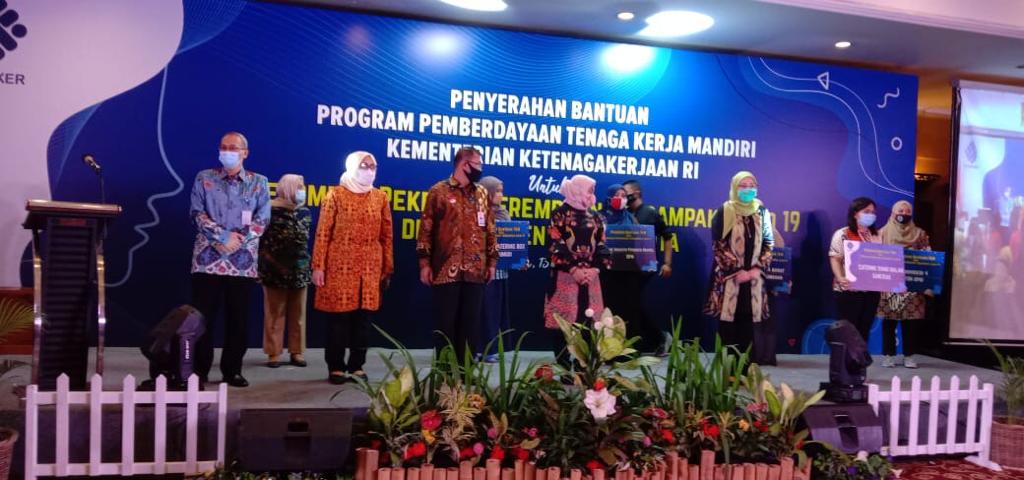Stories

The Tide of Change from the Women of Sulawesi
21 November 2018Author: admin
On a Tuesday afternoon in October in 2018, a group of participants of the MAMPU Partner Study Visit visited a small island in the district of Pangkajene and Kepulauan in South Sulawesi. On the island, at the simple Mattiro Kanja Village Office, women who are part of the informal Women’s School (Sekolah Perempuan) talked about the change they had experienced as a result of being involved in this organization. Sekolah Perempuan is a women’s empowerment initiative created by Institut KAPAL Perempuan implemented through their subpartner the Foundation for Community Studies and Development (YKPM). Women’s Schools are founded on the principle of a lifelong education.

“How do you, as women, face the negative stigma or suspicions from the community regarding the activities of Sekolah Perempuan?” asked Ridwan, a member of the Bandung-based SAPA Institute, a MAMPU Partner and participant of the visit.
“In the beginning, it was indeed difficult, but we kept going, even when religious leaders who did not understand our activities said that our Sekolah Perempuan was a deviant sect, we were not afraid.” replied Indotang, a member of the Women’s School who lives in the Mattiro Uleng Village.
Instead they slowly provided explanations to the people in the neighbourhood. “Now, I am able to invite more women to join in fighting for their rights and teach them about the 17 Sustainable Development Goals (SDGs),” Indotang explained as she proceeded to name each of the individual goals based on the principle of ‘Leave No One Behind’ in development efforts.

Every member of Sekolah Perempuan believes in the values of equality and the right to a decent life. Equipped with these values, Musdalifah, who learned about gender equality at the Sekolah Perempuan in the Mattiro Bombang Village, did not hold back from talking about the challenges that she encountered, even in her own home.
“Before joining the Sekolah Perempuan, we the wives would normally only get the tail of the fish, and eat it in the kitchen; meanwhile, our husbands would get to eat the head and the body. After learning about gender equality, we were able to talk to our husbands about equality between men and women. We now enjoy eating the head and the body of the fish together at the dinner table.”
Although she comes from the same village, Risma’s struggle is different to that of Musdalifah. As a younger member, Risma told about the fear of public speaking that she used to have.
“Forget about fighting for the rights of the poor, I didn’t even have the courage to speak like this,” she said with a smile. “But because I studied and trained, now I can speak in front of a crowd. Now I have the courage to voice my grievances to the government.” With her voice, Risma has been successful in influencing local government policies to help low-income families obtain decent housing.
Darma from Mattiro Uleng village also shared her story about the importance of preventing child marriage. ”
I am a victim of child marriage. I married at 14 years old. I gave birth and almost died at 16. Whenever I see a friend who has a child reaching their teenage years, I always tell them ‘don’t marry them off yet, think about their future, I have felt the negative impact [of child marriage],” Darma then continued to explain why preparing children for their future is more important than marrying them off in their teenage years.

Along with Indotang, Musdalifah, Risma, and Darma, thousands of other participants of Sekolah Perempuan spread across 25 villages, eight districts, and six provinces, receive support from the MAMPU Program through KAPAL Perempuan and its network. They are supported to build their leadership capabilities and develop various other life skills.
This women’s empowerment model has been proven to be successful for increasing access to social protection for poor women and from MAMPU beginnings Sekolah Perempuan has now been replicated by the Government of Indonesia in 46 additional villages in ten districts spread throughout Indonesia.





